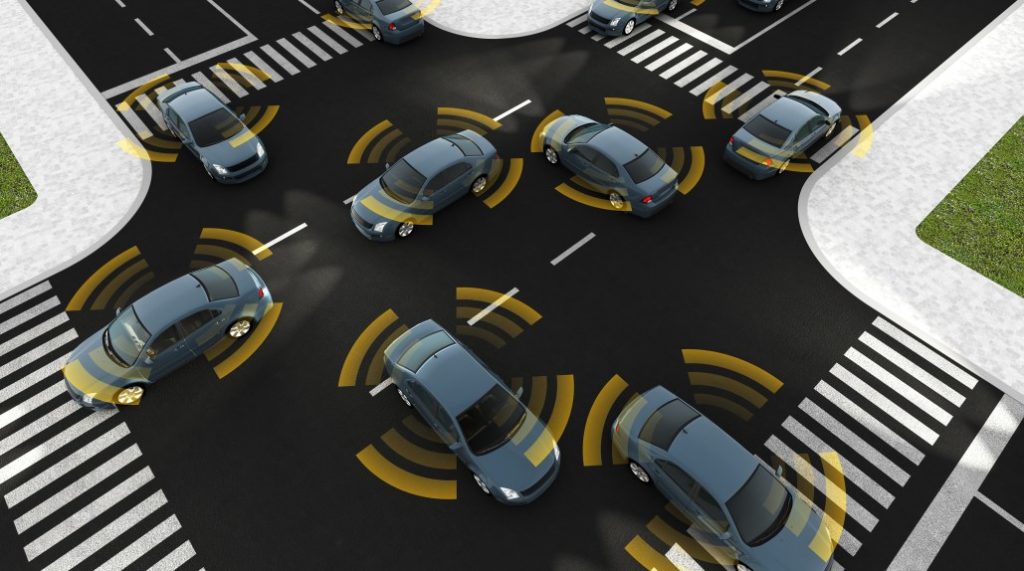
When travelers visited indigenous people in remote places, they often had problems when they took out their cameras and wanted to take some pictures. The locals frequently turned away, in what was later explained as a fear of having their souls stolen by the camera’s image.
After all, who wants to let a stranger take your soul away?
Indigenous people have an interesting relationship between their experience and their representations of it. The pictures here are of embroideries made by the Kuna people who live on remote islands off the coast of Panama. I don’t know what these abstractions mean to the Kuna, but I thought they might stand in here for representations of something that’s essential to them, like their souls.
Technology today is probing—with the aim of influencing, for both good and bad purposes—the most human and vital parts of us. For years, the alarm bells have been going off about the impact on our kids of video games (and more recently their on-line multi-player successors), because kids are really “each of us” at our most impressionable. Unlike many indigenous people however, most kids are blissfully unaware that somebody might be stealing something from them or that their behavior is being modified while they are busy having fun. And it’s not just kids today who become engaged and vulnerable to those behind their screens whenever they’re playing, shopping or exploring on-line.
Because of their ability to engage and distract, the tightly controlled environments of on-line games provide behavioral scientists and the others who are watching us play them a near perfect Petri dish in which to study the choices we make in the game’s virtual world and how they can influence them. As a result of the data being gathered, the “man behind the curtain” has become increasingly adroit at deepening our engagement, anticipating our behavior once we’re “on the hook,” manipulating what we do next, and ensuring that we stay involved in the game as long as he wants us to.
Games benefit their hosts by selling stuff to players, mostly through ads and marketing play-related gear. Game hosts are also selling the behavioral information they gather from players. Their playbook is the same as Facebook’s: monetizing behavioral data about its users by selling that data to whoever wants to influence our decision-making in all aspects of our lives and work.
When it comes to gathering particularly rich pools of behavioral data, two games today are noteworthy. Fortnite has become one of the most successful games in history in what seems like a matter of months, while Tetris, one of the first on-line games, has recently been updated for an even wider demographic. This week’s stories about them illustrate the potency of their interactions with players; the precision of the existing behavioral data that these games have utilized; the even more refined behavioral data they are currently gathering on players; and the risks of addiction and other harms to the humans who are playing them.
These stories amount to a cautionary tale, affecting not just the games we play but all of our screen-facing experiences. Are we, as citizens of the enlightened, freedom-loving West, equipped to “save our souls” from these aspiring puppet-masters or is the paternalistic, more harmony-seeking East (particularly China with its great firewalls and social monitors) finding better solutions? It’s actually a fairly simple question—
Whose values will save us from our technology?
1. The Rise of Fortnite and Tetris
Five years or an on-line lifetime ago, I wrote about “social benefit games” like WeTopia, wondering whether they could enable us to exercise our abilities to act in “pro-social” or good ways on-line before we went out to change the world. I also worried at the time about the eavesdroppers behind our screens who were studying us while we did so.
I heralded their enabling quality, their potential for helping us to behave better, in a post called Game Changer:
The repetitive activities in this virtual world didn’t feel like rote learning because the over-and-over-again was embedded in the diversions of what was, at least at the front end, only a game. Playing it came with surprises (blinking “opportunities” and “limited time offers”), cheerful reminders (to water my “giving tree” or harvest my carrots), and rewards from all of the “work” I was doing (the “energy,” “experience,” and “good will” credits I kept racking up by remembering to restock Almanzo’s store or to grow my soccer-playing community of friends).
What I’m wondering is whether this kind of immersive on-line experience can change real world behavior.
We assume that the proverbial rat in this maze will learn how to press the buzzer with his little paw when the pellets keep coming.
Will he (or she) become even more motivated if he can see that a fellow rat, outside his maze, also gets pellets every time he presses his buzzer?
And what happens when he leaves the maze?
Is this really a way to prepare the shock troops needed to change the world?
In a second post, I looked at what “the man behind the curtain” was doing while the game’s players were learning how to become better people:
He’s a social scientist who has never had more real time information about how and why people behave in the ways that they do (not ever!) than he can gather today by watching hundreds, sometimes even millions of us play these kinds of social games.
Why you did one thing and not another. What activities attracted you and which ones didn’t. What set of circumstances got you to use your credit card, or to ask your friends to give you a hand, or to play for 10 hours instead of just 10 minutes.
There’s a lot for that man to learn because, quite frankly, we never act more naturally or in more revealing ways than when we’re at play.
In my last post back then, I concluded that there were both upsides and downsides to these kinds of on-line game experiences and agreed to keep an open mind. I still think so, but am far more pessimistic about the downsides today than I was all those years ago.
Fortnite may be the most widely played on-line game ever. As a hunt/kill your enemies/celebrate your victories kind of adventure, it is similar to hundreds of other on-line offerings. Like them, it has also drawn far more boys than girls as players. What distinguishes the Fortnite experience is the behavioral data that has informed it.
In a recent Wall Street Journal article, “How Fortnite Triggered an Unwinnable War Between Parents and Their Boys,” the game’s success is due to the incorporation of existing behavioral data in its base programming and simultaneous machine learning while the game is afoot. Dr Richard Freed, psychologist and author of “Wired Child: Reclaiming Childhood in a Digital Age” says that Fortnite has combined so many “persuasive design elements” (around 200) that it is the talk among his peers. “Something is really different about it,” he said.
Ofir Turel who teaches at Cal State Fullerton and researches the effects of social media and gaming, talked about one of those persuasive design elements, namely how Fortnite players experience the kind of random and unpredictable rewards that keep their casino counterparts glued to their seats for hours in front of their slot machines. (Fifty years ago, behaviorist B.F. Skinner found that variable, intermittent rewards were more effective than a predictable pattern of rewards in shaping the habit-forming behavior of pigeons.) “When you follow a reward system that’s not fixed, it messes up our brains eventually,” said Turel. With games like Fortnite, he continues: “We’re all pigeons in a big human experiment.”
The impact of these embedded and evolving forms of persuasion were certainly compelling for the boys who are profiled in this article. Toby is a representative kid who wants to play all of the time and whose behavior seems to have changed as a result:
Toby is ‘typically a nice kid,’ his mother said. He is sweet, articulate, creative, precocious and headstrong—the kind of child who can be a handful but whose passion and curiosity could well drive him to greatness. [In other words, the perfect Wall Street Journal reader’s pre-teen.]
Turn off Fortnite [however], and he can scream, yell and call his parents names. Toby gets so angry that his parents impose ‘cooling off’ periods of as long as two weeks. His mother said he becomes less aggressive during those times. The calming effect wears off after Fortnite returns.
Toby’s mother has tried to reason with him. She has also threatened boarding school. ‘We’re not emotionally equipped to live like this,’ she tells him. ‘This is too intense for the other people living here.’
Of course, it could be years before psychologists and other researchers study larger samples of boys playing Fortnite and report their findings.
In the meantime, there was also a story about Tetris in the newspapers this week. Some of you may remember the game from the era of Pokeman. (Essentially, you attempt to navigate blocks or clusters of blocks into the spaces in a container on the screen below, where you drop them in.) How could a simple, time consuming, 1980’s era diversion like this be harmful, you ask? This time it seems to embed an endless desire for distraction instead of aggression.
A 1994 article in Wired magazine identified something called “the Tetris Effect.” Long after they had played the game, many players reported seeing floating blocks in their minds or imaging real-life objects fitting together. At the time, Wired suggested that the game’s effect on the brain made it a kind of “electronic drug” or “pharmatronic.” The random sample of players in this week’s article added further descriptors to the Tetris Effect.
One player named Becky Noback says:
You get the dopamine rush from stacking things up in a perfect order and having them disappear—all that classic Tetris satisfaction. It’s like checking off a to-do list. It gives you this sense of accomplishment.
Another player, Jeremy Ricci, says:
When everything’s clicking, and you’re dropping your pieces, you get into this trancelike rhythm. It’s hard to explain, but when you’re in virtual-reality mode, there’s things going beneath you, and to the side of you, and the music changes, and you’re getting all those elements at the same time, you get a surreal experience.
The article recounts that a Twitter search of both “Tetris Effect” and “cry” or “tears” will uncover tweets where players are wondering: “Why am I tearing up during a Tetris game?” testifying to the game’s deep emotional resonance. Reviewers of the newest version of the game (out in December) have also called it “spiritual,” “transcendental,” and “an incredible cosmic journey.”
What is prompting these reactions? While the basic game is the same as ever, the newest version surrounds the block-dropping action with fantastical environments, ambient new age music, and, occasionally, a soothing lyric like “what could you be afraid of?” Add virtual reality goggles, and a player can float in space surrounded by stars while luminescent jellyfish flutter by and mermaids morph into dolphins. When a player drops in his or her blocks, the audio pulses gently and the hand-held controller vibrates. While the new version of the game may seem aimed at seekers of “trippy experiences,” in fact it is being marketed as an immersive stress-relieving diversion. It is here where Tetris aims for a market beyond the usually game-playing crowd, which skews younger and more male. (Think of all those new pigeons!). Almost everyone wants a stress reliever after all.
You can see a preview of the new Tetris for yourself (with or without your virtual reality headsets) via this link.
These early assessments of Fortnite and Tetris only provide anecdotal evidence, but we seem to be entering a strange new world where a game’s interface and those gathering information and manipulating our behavior behind it have taken over more of our attention, healthy detachment, and ability to think for ourselves.

2. Go East or Go West?
In “Fortnite Addiction: China Has the Answer,” David Mattin discusses China’s assessment of the problem, the solution that its social monitors are implementing today, and why their approach just might make sense for us too. Mattin is the Global Head of Trends and Insights (a great job title!) at TrendWatching and sits on the World Economic Forum’s Global Futures Council. He put up his provocative post on Medium recently.
It’s been widely reported that China is rolling out what Mattin calls “an unprecedented, tech-fueled experiment in surveillance and social control.” Under this system, citizens are assigned a “social credit rating” that scores each citizen’s worth as a citizen. It is a system that seems shocking to us in the West, but it follows centuries of maintaining a social order based on respect for elders (from the “celestial kingdom of rulers” on down) and a quest for harmony in the community as a whole. The Chinese government intends to have a compulsory rating system in place nationwide by 2020. Individuals with low social credit scores have already been denied commercial loans, building permits and school admissions. Mattin reports that low scorers have also been blocked from taking 11.4 million flights and 4.2 million train rides. This system is serious about limiting personal freedoms for the sake of collective well being.
Like many of us, China’s monitors have become alarmed by reports of Fortnite addiction and Tencent, the world’s sixth largest internet company, recently started using camera-enabled facial recognition technology to restrict the amount of time that young people play a multi-player video game called Honor of Kings that’s similar to Fortnite. As in the West, the concern is about the impact of these gaming technologies on young people’s developing brains and life prospects.
Under government pressure, Tencent first trialled the new system back in October. Now they’ve announced they’ll implement facial recognition-based age restrictions on all their games in 2019. Under 12s will be locked out after one hour per day; 13–18-year olds are allowed two hours. And here’s the crucial detail: the system is fuelled by the national citizen database held by China’s Ministry of Public Security. Yes, if you’re playing Honor of Kings in China now, you’re being watched via your webcam or phone camera and checked against a vast government database of headshots.
Because we can’t imagine it happening here doesn’t mean it’s the wrong approach, and in the most interesting part of his argument, Mattin partially explains why.
He begins with the observation that priorities in Chinese society and the trade-offs they’re making are different—something that’s hard (if not impossible) for most of us Westerners, overtaken by our feelings of superiority, to understand.
– “Enlightenment liberal values are not the only way to produce a successful society” and
– “value judgments are trade-offs; you can have a bit more of one good if you tolerate having a bit less of another.”
Indeed, it is how all ethical systems work; some values are always more important than others in decision-making. Mattin drives his point home this way:
What western liberal democrats have never had to countenance seriously is the idea that theirs are not the only values mandated by reason and morality; that they’re not the universal end point of history and the destination for all successful societies. In fact, they’re just some values among many others that are equally valid. And choosing between ultimate values is always a case of trading some off against others.
Mattin rubs it in even further with an uncomfortable truth and a question for additional pondering.
For us, as the supposed champions of freedom and the rights of every individual, the uncomfortable truth is that every single day “we’re actively deciding (albeit unconsciously) that we hold other values — such as convenience and distraction — above that of individual liberty.” So it is not really government interference with our freedoms that we reject; it is anyone else’s right to interfere with our convenience or right to be distracted as much as we want anytime that we want. Of course, I’ve been making a similar argument when urging that new restraints be placed on tech giants like Facebook, Amazon and Google. However uncomfortable it is to hear, our insatiable desires for convenience and distraction are simply not more important than preventing the harms these companies are causing to our political process, privacy rights, and competitive markets. Even so, in the U.S. at least, we seem to making very little progress in any of these areas because we supposedly stand for freedom.
Mattin’s what-if question to mull over is as follows. What if the evidence mounts that excessive screen time playing games and otherwise really is damaging young people’s (or maybe everyone’s) minds and that China’s government-imposed time restrictions really do limit the damage? How will the West respond to “the spectacle of a civilisation founded on a very different package of values — but one that can legitimately claim to promote human flourishing more vigorously than their own”?
3. Whose Values Should Help Us To Decide?
I have a few additional questions of my own.
If empowering a Big Brother (or Sister) like China’s in the West is unpalatable, how can a distracted public that is preoccupied by its conveniences be roused enough to counter tech-related harms with democratically determined cures?
Do we need to be confronted by an epidemic of anti-social gamers before we act? Since an epidemic of opioid addiction and “deaths of despair” hasn’t roused the citizenry (or its elected representatives) to initiate a meaningful response, why would it be any different here?
Even if we had The Will to pursue solutions, could safety nets ever be put into place quickly enough to protect the generations that are playing Fortnite, Tetris and other games today? After all, democracy is cumbersome, time-consuming.
And continuing this thought, can democratic governments ever hope to “catch up to” and protect their citizens from rapidly evolving and improving technologies with troubling human impacts? Won’t the men and women behind our screens always be ahead of a non-authoritarian government’s ability to constrain them?
I hope you’ll let me know what you think the answers might be.
This post is adapted from my March 3, 2019 newsletter.











